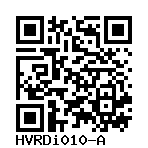19a
The cell line is not validated yet.
HVRDi010-A
General
Cell Line |
|
| hPSCreg name | HVRDi010-A |
| Cite as: | HVRDi010-A |
| Alternative name(s) |
19a
|
| Cell line type | Human induced pluripotent stem cell (hiPSC) |
| Similar lines |
PFIZi013-A (RCi215, RCFB59 C9) Donor's gene variants: TARDBP, TARDBP Donor diseases: Amyotrophic lateral sclerosis UCLi004-A (RCi173, RCFB60c6) Donor's gene variants: C9orf72, C9orf72 Donor diseases: Amyotrophic lateral sclerosis Frontotemporal dementia UCLi004-B (RCFB60c7, RCi177) Donor's gene variants: C9orf72, C9orf72 Donor diseases: Amyotrophic lateral sclerosis Frontotemporal dementia UCLi004-C (RCi172, RCFB60c2) Donor's gene variants: C9orf72, C9orf72 Donor diseases: Amyotrophic lateral sclerosis Frontotemporal dementia SAPi004-A (ALS III, TDP43-A382T/A382T, ALS III-TDP43-A382T/A382T) Donor diseases: Amyotrophic lateral sclerosis UKBi007-A (LB-33-5, iLB-MJD3-33f-r5) Donor's gene variants: ATXN3, ATXN3 Donor diseases: Machado-Joseph disease EDi001-A (AST22, AST23, SAMEA3319992) Donor's gene variants: SNCA, SNCA, SNCA Donor diseases: Parkinson disease UKBi003-A (iLB-MJD1-32m-r9, LB-32-r9) Donor's gene variants: ATXN3, ATXN3 Donor diseases: Machado-Joseph disease UKBi008-A (iLB-MJD4-34m-r1, LB-34-1) Donor's gene variants: ATXN3, ATXN3 Donor diseases: Machado-Joseph disease |
| Last update | 11th May 2021 |
| User feedback | |
Provider |
|
| Generator | Harvard University (HVRD) |
External Databases |
|
| BioSamples | SAMEA8927126 |
General Information |
|
| Projects | |
| * Is the cell line readily obtainable for third parties? |
No |
Donor Information
General Donor Information |
|
| Sex | female |
Phenotype and Disease related information (Donor) |
|
| Diseases | A disease was diagnosed.
|
External Databases (Donor) |
|
| BioSamples | SAMEA5176973 |
Ethics
| Has informed consent been obtained from the donor of the embryo/tissue from which the pluripotent stem cells have been derived? | Yes |
| Was the consent voluntarily given? | Yes |
| Has the donor been informed that participation will not directly influence their personal treatment? | Yes |
| Can you provide us with a copy of the Donor Information Sheet provided to the donor? | Yes |
| Do you (Depositor/Provider) hold the original Donor Consent Form? | No |
| If you do not hold the Donor Consent Form, do you know who does? | No |
| Please indicate whether the data associated with the donated material has been pseudonymised or anonymised. | anonymised |
| Does consent explicitly allow the derivation of pluripotent stem cells? | Yes |
| * Does consent expressly prevent the derivation of pluripotent stem cells? | No |
| Does consent prevent CELLS DERIVED FROM THE DONATED BIOSAMPLE from being made available to researchers anywhere in the world? | No |
| How may genetic information associated with the cell line be accessed? | No information |
| Will the donor expect to receive financial benefit, beyond reasonable expenses, in return for donating the biosample? | No |
| Has a favourable opinion been obtained from a research ethics committee, or other ethics review panel, in relation to the Research Protocol including the consent provisions? | Yes |
| Name of accrediting authority involved? | Harvard University Area IRB |
| Approval number | F13944 |
| Has a favourable opinion been obtained from a research ethics committee, or other ethics review panel, in relation to the PROPOSED PROJECT, involving use of donated embryo/tissue or derived cells? | Yes |
| Name of accrediting authority involved? | Harvard University Area IRB |
| Approval number | F13944 |
| Do you have obligations to third parties in regard to the use of the cell line? | Yes |
| Please describe: | see MTA |
| Is there an MTA available for the cell line? | Yes |
| For generation of the cell line, who was the supplier of any recombined DNA vectors or commercial kits used? |
hIPSC Derivation
General |
|
| Source cell type |
Any skin fibroblast that is part of some dermis.
|
Reprogramming method |
|
| Vector type | Integrating |
| Vector | Virus (Retrovirus) |
| Is the used vector excisable? |
Unknown |
| Absence of reprogramming vector(s)? |
Unknown |
| Reprogramming vectors silenced? | |
Vector free reprogramming |
|
Other |
|
| Derived under xeno-free conditions |
Unknown |
| Derived under GMP? |
Unknown |
| Available as clinical grade? |
Unknown |
Culture Conditions
| Surface coating | Matrigel/Geltrex |
| O2 Concentration | 20 % |
| CO2 Concentration | 5 % |
| Medium |
Other medium:
Base medium: StemFlex or mTeSR
Main protein source: Serum concentration: % |
| Has Rock inhibitor (Y27632) been used at passage previously with this cell line? | No |
| Has Rock inhibitor (Y27632) been used at cryo previously with this cell line? | No |
| Has Rock inhibitor (Y27632) been used at thaw previously with this cell line? | Yes |
Characterisation
Analysis of Undifferentiated Cells
| Marker | Expressed | Immunostaining | RT-PCR | Flow Cytometry | Enzymatic Assay | Expression Profiles |
| NANOG |
Yes |
|
||||
| TRA 1-81 |
Yes |
|
Self-renewal
Unknown
Endoderm
Unknown
Mesoderm
Unknown
Ectoderm score
Positive
Genotyping
Karyotyping (Cell Line) |
|
| Has the cell line karyotype been analysed? |
Yes
46, XX, Normal Human Female
|
Other Genotyping (Cell Line) |
|


Login to share your feedback, experiences or results with the research community.